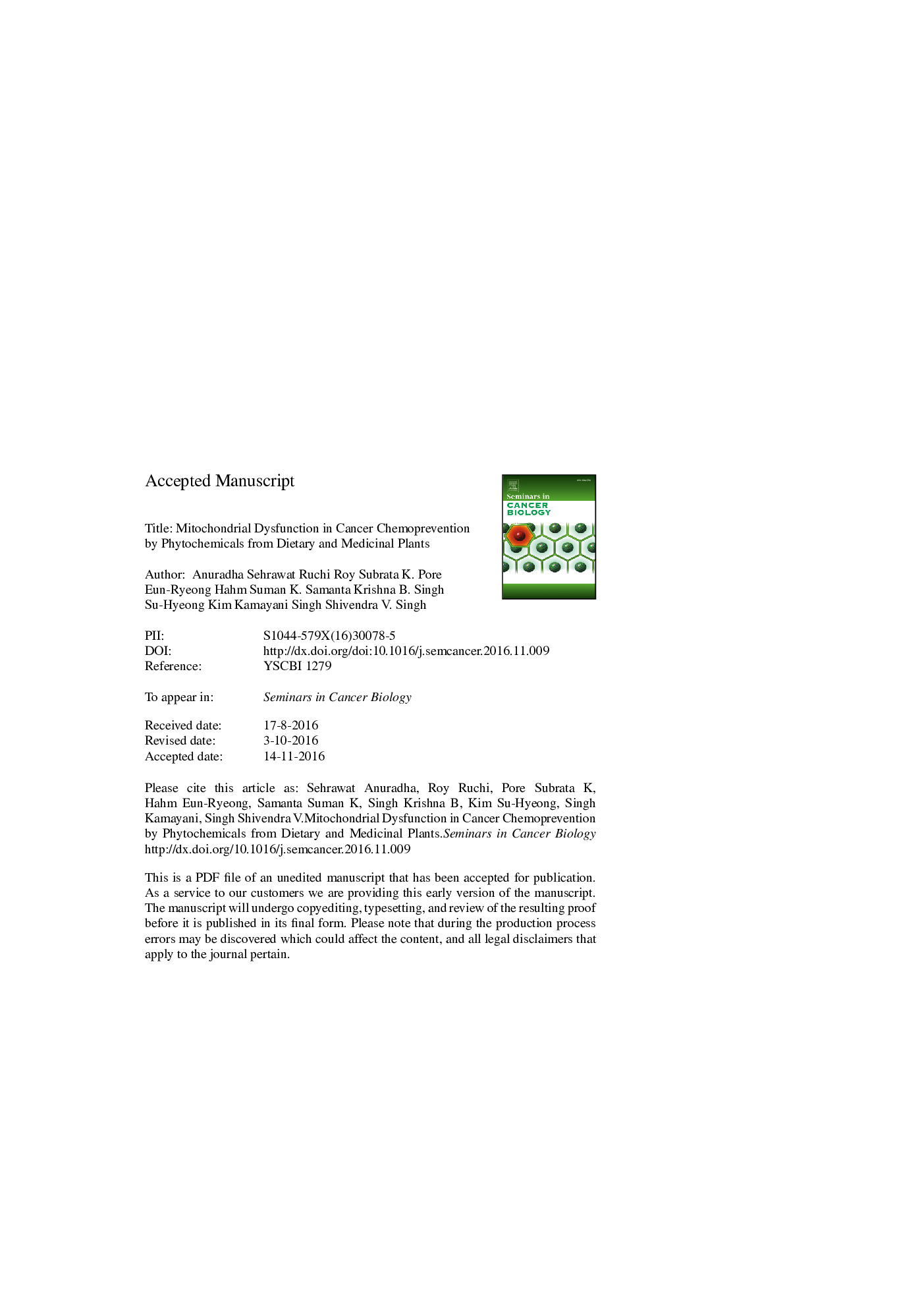| کد مقاله | کد نشریه | سال انتشار | مقاله انگلیسی | نسخه تمام متن |
|---|---|---|---|---|
| 8361846 | 1542522 | 2017 | 26 صفحه PDF | دانلود رایگان |
عنوان انگلیسی مقاله ISI
Mitochondrial dysfunction in cancer chemoprevention by phytochemicals from dietary and medicinal plants
ترجمه فارسی عنوان
اختلالات میتوکندریک در پیشگیری شیمیایی سرطان توسط فیتوشیمیایی از گیاهان دارویی و دارویی
دانلود مقاله + سفارش ترجمه
دانلود مقاله ISI انگلیسی
رایگان برای ایرانیان
موضوعات مرتبط
علوم زیستی و بیوفناوری
بیوشیمی، ژنتیک و زیست شناسی مولکولی
زیست شیمی
چکیده انگلیسی
Cancer chemoprevention, a scientific term coined by Dr. Sporn in the late seventies, implies use of natural or synthetic chemicals to block, delay or reverse carcinogenesis. Phytochemicals derived from edible and medicinal plants have been studied rather extensively for cancer chemoprevention using preclinical models in the past few decades. Nevertheless, some of these agents (e.g., isothiocyanates from cruciferous vegetables like broccoli and watercress) have already entered into clinical investigations. Examples of widely studied and highly promising phytochemicals from edible and medicinal plants include cruciferous vegetable constituents (phenethyl isothiocyanate, benzyl isothiocyanate, and sulforaphane), withaferin A (WA) derived from a medicinal plant (Withania somnifera) used heavily in Asia, and an oriental medicine plant component honokiol (HNK). An interesting feature of these structurally-diverse phytochemicals is that they target mitochondria to provoke cancer cell-selective death program. Mechanisms underlying cell death induction by commonly studied phytochemicals have been discussed rather extensively and thus are not covered in this review article. Instead, the primary focus of this perspective is to discuss experimental evidence pointing to mitochondrial dysfunction in cancer chemoprevention by promising phytochemicals.
ناشر
Database: Elsevier - ScienceDirect (ساینس دایرکت)
Journal: Seminars in Cancer Biology - Volume 47, December 2017, Pages 147-153
Journal: Seminars in Cancer Biology - Volume 47, December 2017, Pages 147-153
نویسندگان
Anuradha Sehrawat, Ruchi Roy, Subrata K. Pore, Eun-Ryeong Hahm, Suman K. Samanta, Krishna B. Singh, Su-Hyeong Kim, Kamayani Singh, Shivendra V. Singh,
